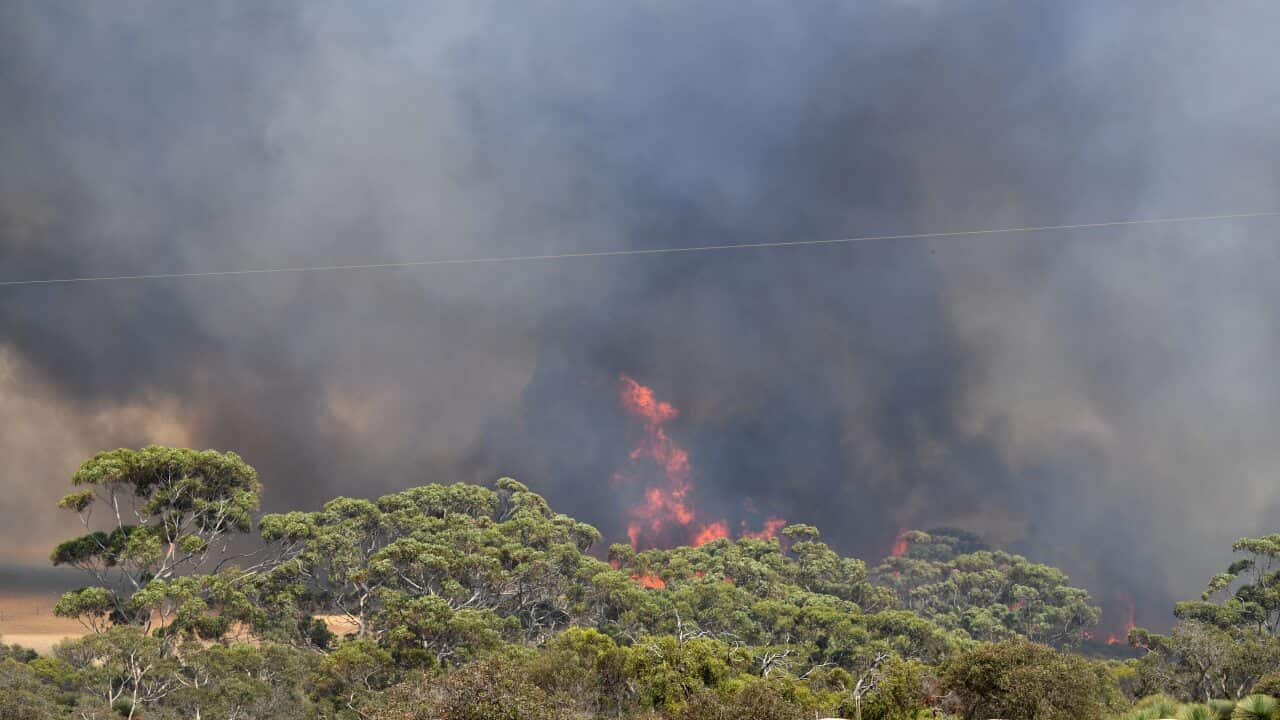A global report is urging world leaders to act to prevent 'catastrophic' impacts of climate change within the next decade.
Wildfires, droughts, flooding and heatwaves are predicted to get worse and become more prevalent according to the United Nations Intergovernmental Panel on Climate Change.
The report said that Australia is experiencing widespread climate change and could warm up to 4 degrees Celsius over the next century.
First Nations people are seeing the impacts of climate change with communities in the Torres Strait over their concerns government inaction is leading to rising sea levels threatening their homes.
Catastrophic bushfires and major flooding have also been seen in abundance over recent years.
The Australian National Universities' Bhiamie Williamson was one of a team of Indigenous researchers who reviewed the IPCC report - which is the global authority that produces a snapshot of the reality of climate change every five years.
He said the lack of action by the Australian government in tackling climate change head-on is failing our people.
“It's a slap in the face," he told NITV News.
"That is saying that our lives, our livelihoods, our cultural ways of being, of knowing and doing don't even factor into the consideration.” The Euahlayi man, who is a Research Scholar at the ANU's Centre for Aboriginal Economic Policy Research, said in this country there is a lack of political will to seriously attack the issue.
The Euahlayi man, who is a Research Scholar at the ANU's Centre for Aboriginal Economic Policy Research, said in this country there is a lack of political will to seriously attack the issue.

Australian National University’s researcher Bhiamiem Williamson is urging the federal government to act on climate change. (Supplied: Bhiamie Williamson)
On Tuesday, Prime Minister Scott Morrison said the federal government is committed to tackling climate change but ruled out more funding in response to the UN's IPCC report.
"I won't be signing a blank cheque on behalf of Australians to targets without plans...I will not be asking people in the regions of this country to carry the burden for the country alone," he said.

A jetty underwater in the Torres Strait. Rising sea levels are prompting families to be relocated to higher ground. Source: AAP
Indigenous people bearing 'the brunt' of climate change
First Nations people across the globe are already seeing the dire impacts of a changing environment. In Alaska for example, rising temperatures are melting ice caps and putting traditional foods at risk.
Mr Williamson said the First peoples have always known how to look after the land and are "bearing the brunt" of the climate emergency.
"We are going to see an increase in cyclone activity up in the north. We're going to see more king tides. We're going to see more drought," he said.
"We're always practiced as a land-based ethics of culture. We know how to live with the world...There is a bit of a colonial narrative to climate change.
"We've lived through climate change before on this continent and many groups continue to have the stories of how the landscape changed... adaptation is possible, cultural evolution is possible and we can survive and thrive.

A Royal Commission was held into the 2019/2020 Summer Bushfires in Australia Source: AAP
'Indigenous knowledge' and caring for Country
The report said Indigenous knowledge of climate, weather patterns and other specialised insight can have a great influence in reducing reduce climatic impacts.
"These approaches are more effective when combined with other policies and tailored to the motivations, capabilities and resources of specific actors and contexts," it read.
"Indigenous knowledge and local knowledge, can accelerate the wide-scale behaviour changes consistent with adapting to and limiting global warming to 1.5°C."
Mr Williamson testified at the Royal Commission into the deadly 2019/2020 summer bushfires. He said our people are part of the solution.
"Indigenous people around the world are caring for Country in some of the most significant and diverse parts of the world," he said.
“First Nations lands around the country are a real asset in Australia's response to climate change and in Australia's ability to support and to look after our native plants, animals, and fish species.”
Many countries abroad have committed to net-zero by 2050 and others including the United States and the United Kingdom substantially increased the ambition of their 2030 targets.
The Australian government has committed to cutting emissions by 26-28 percent on 2005 levels by 2030 under the Paris Agreement, a legally binding treaty on climate change signed by more than 190 countries.

The town of Moree in northern New South Wales was split in two by overflowing waters of the Mehi River in March 2021. Source: NITV News


